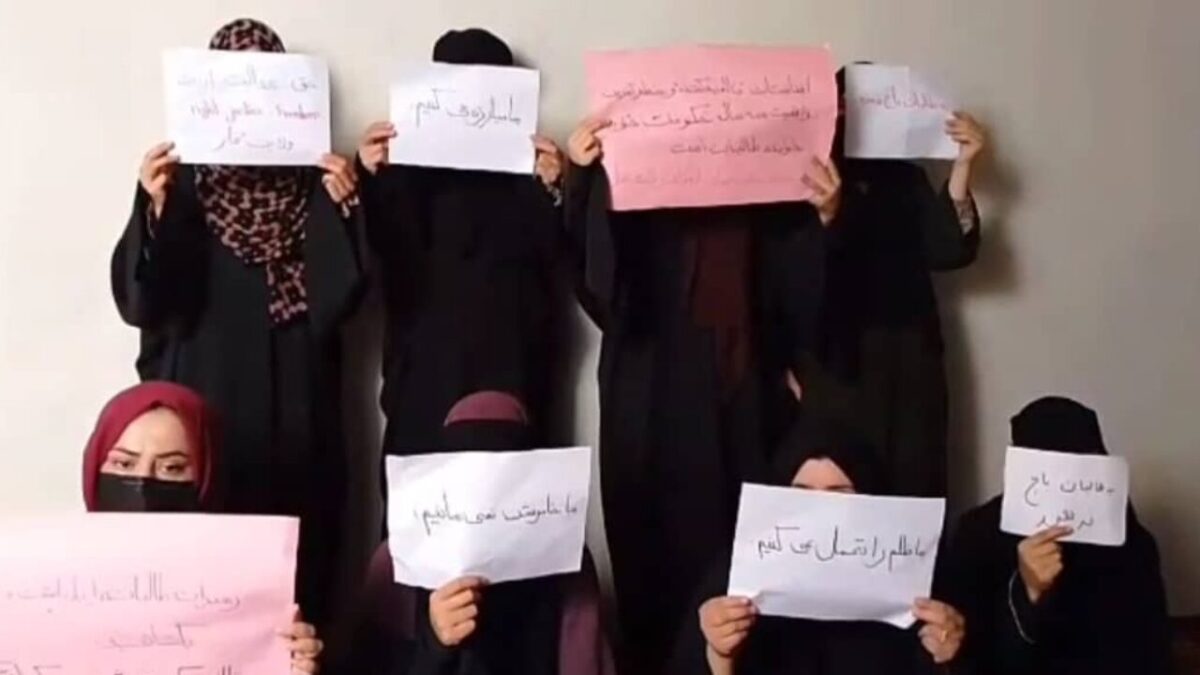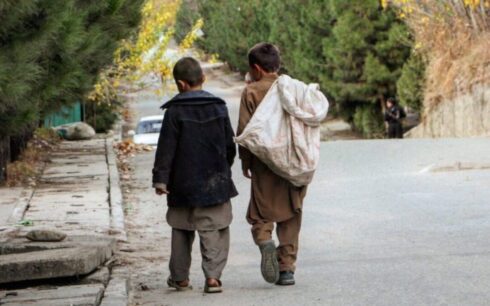In a statement issued following protest gatherings in Takhar, Balkh, Panjshir, and Kabul, the Purple Saturdays Movement declared that the Taliban’s return to power has ushered in a new era of suffering and hardship for the people of Afghanistan.
“The Taliban, through crimes against humanity, gender apartheid against women, war crimes, widespread violations of citizens’ basic rights, killing of innocent people, forced displacement, public floggings, summary executions, ideological indoctrination, and instilling fear to solidify their oppressive rule over the past three years, have set the country back significantly—a regression that will take years to undo,” the movement stated.
The women’s movement also asserted that Afghanistan was handed over to the Taliban in a “disgraceful deal,” enabling their takeover of the country.
The statement further elaborated: “The Taliban’s enmity toward women, their efforts to normalize violence, deprivation, and suppression of women and girls under the guise of enforcing Afghan culture and Islam, including the kidnapping, assault, and sexual violence—especially against protesting women—within Taliban prisons to silence the voices of justice, is a bitter and shameful reality of the three years under this criminal regime.”
The Purple Saturdays Movement also criticized the Taliban for their indifference to Afghanistan’s international isolation, which has exacerbated poverty and unemployment, increased child labor, and driven millions of Afghans—particularly the youth—to flee the country. “The Taliban have not hesitated to steal international aid, plunder national resources, and ignore the millions of impoverished and hungry people, especially women and children, while promoting Taliban ideology, establishing jihadist schools, and financially supporting terrorist groups,” the statement read.
The movement also accused the Taliban of perpetuating targeted killings of Shia and Hazara communities, stating that despite the group’s claims of nationwide security and the defeat of ISIS, the continued cycle of violence against these minorities suggests that the attacks are orchestrated by the Taliban themselves, particularly the Haqqani network.
The statement concluded by condemning the Taliban’s creation of an illegitimate, ethnically exclusive, and gender-exclusive government. “Over the past three years, the Taliban have demonstrated their complete disregard for the participation of women and other ethnic groups in political power and leadership. They have repeatedly emphasized that elections are a Western concept, and their self-proclaimed government is inclusive.”
Marking the third anniversary of the Taliban’s return to power, the Purple Saturdays Movement stated that power in the Taliban’s “self-declared government” is monopolized by Pashtuns, predominantly clerics and Taliban members, with the few Tajiks and Uzbeks in the cabinet serving only as a facade to mislead public opinion.
This anniversary has sparked widespread reactions, with numerous political figures, human rights activists, and women’s rights defenders labeling August 15 as a “black day in Afghanistan’s history.”
The Taliban, however, refer to August 15 and the fall of the republic as a “day of victory” and celebrated it yesterday.
But citizens across the country view this day as a “black day in the nation’s history,” emphasizing that it marked the beginning of the exclusion of the people, especially women, from the political and social spheres of the country.





